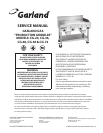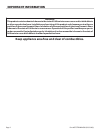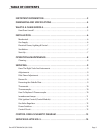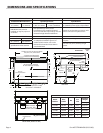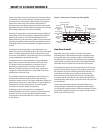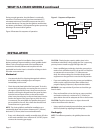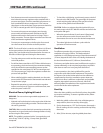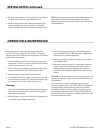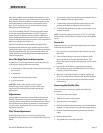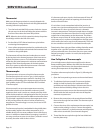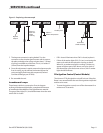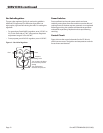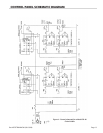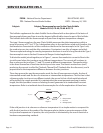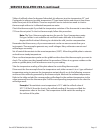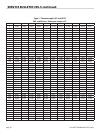
Part #GCGTRAINING06 (03/03/08))Page 8
4. Re-set the thermostat to 275°F and apply a second lm of
oil. After (5) ve minutes, wipe o the excess oil.
5. Reset the thermostat to the cooking temperature and
apply a nal lm of oil. After (3) minutes, wipe o the
excess oil. The griddle is now seasoned and ready for use.
NOTE : We recommend reseasoning the griddle before each
day’s operations begin. Franchise operators who follow
explicit operating procedures should be made aware of this
recommendation.
OPERATION & MAINTENANCE
During idle periods, reduce the thermostat settings to
conserve energy. A setting of 175°F to 200˚F is enough to
keep the plate warm. Reducing the temperature also reduces
the load on the thermostat.
1. At then end of the operations, turn the power and zone
switches OFF. There is no need to change the thermostat
settings when the unit is not in use.
2. Don’t overheat the griddle. Excessive heat causes grease
to carbonize and makes the surfaces hard to clean.
3. Empty the grease trays often to avoid spillovers.
4. For extended shutdown or major maintenance, turn the
power and zone switches OFF, close the manual shut-o
gas valve, and unplug the electrical power cord.
Cleaning
1. At the end of the cooking operations, wipe and clean the
unit while it is still warm. Use a spatula to remove food
residue and burnt grease.
2. When the plate is cool, wash it with a mild detergent, dry
it, and wipe it with a slightly oiled cloth.
3. For a more thorough cleaning, use Garland Ranges F69
fryer and griddle cleaner. Polish the plate to a bright nish,
then wash, rinse and thoroughly dry it.
4. Follow the procedure specied (see Start-Up) to reseason
the cooking surface.
5. To clean the exterior surface of a chain griddle, clean the
stainless steel with a hot detergent or soap solution.
Remove baked on grease by applying the cleanser in
the direction of the polishing lines of the stainless steel
surface.
CAUTION : Do not rub stainless steel in a circular motion. This
destroys the nished surface of the metal and detracts from
its appearance.
If it is necessary to remove hard and burnt on deposits
from high quality surfaces, use SCOTCH-BRITE or STAINLESS
scouring pads by running with the grain of the nished
steel. Remove heat tint the same way, using if necessary a
non-abrasive powered cleanser with the SCOTCH-BRITE or
STAINLESS pad. On no account use ordinary steel wool, it will
damage the nished surface.
INSTALLATION continued



